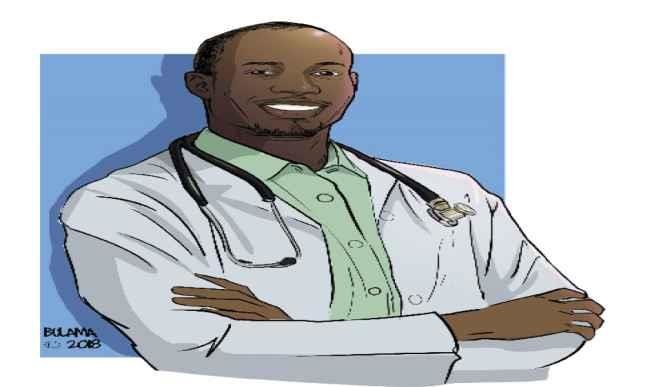Are doctors nervous when loved ones are in hospital?
When a relative, spouse or friend is in the hospital for medical issues like childbirth, surgery and so on, it is not unusual for one to worry, fidget or even pace up and down the waiting room expecting the world to stand still for your relative. As such, it is baffling when you notice the […]


When a relative, spouse or friend is in the hospital for medical issues like childbirth, surgery and so on, it is not unusual for one to worry, fidget or even pace up and down the waiting room expecting the world to stand still for your relative.
As such, it is baffling when you notice the doctors and nurses acting very calm and controlled, when in your mind you expect them to be running helter-skelter, trying to move mountains for your loved one.
This now begs the question ‘do doctors and nurses still act all calm and controlled when it is their own family that is in the hospital or facing a medical emergency’?
Archibong Paulinus, a care and support nurse with the Institute of Human Virology Nigeria, told LIFEXTRA that “the nurse or doctor is just like every other human being and they get very nervous when a relative is being operated on or going through a severe medical procedure.”
Paulinus said they get “quite nervous” because they’ve been in the position of watching other people’s relatives pass on in the same circumstance.
An Abuja-based medical doctor who simply identified herself as Yvonne said, Yes” doctors also get agitated “because we’re human like everyone else.”
A doctor working with a Non-governmental organization who doesn’t want to be named said “It depends on the condition. Surgery? Yes. An infection like typhoid and cellulitis? No.”
Why get agitated in some situations and not in others, she said “Every surgery has complications, it could be minor complications but still there are. The most feared is a reaction to the anaesthetic agent.
“It can be deathly or the patient might never wake up. Add the incompetence of doctors in Nigeria due to poor training and the risks of surgical complications increase.”
She added that doctors aren’t allowed to treat family or spouse “because of the emotional attachment.”
Augusta Imomon, a medical doctor at the National Hospital Abuja, said “I have never been in that situation” where her family member is in a critical condition or undergoing surgery.
She explained “Personally, I don’t fidget about anything.”
She further said that she is a proactive person as such, “If they are going for surgery, I’ll simply prepare them for death in case it occurs. I like to be prepared for things in general,” Augusta added.
It is generally believed that even though medical practitioners can act calm and controlled around patients, they might not be able to exercise the same demeanor towards relatives.
The American Medical Association’s Code of Medical Ethics: Opinion 1.2.1 states that “Treating oneself or a member of one’s own family poses several challenges for physicians, including concerns about professional objectivity, patient autonomy and informed consent.”
It added “In general, physicians should not treat themselves or members of their own family.”
